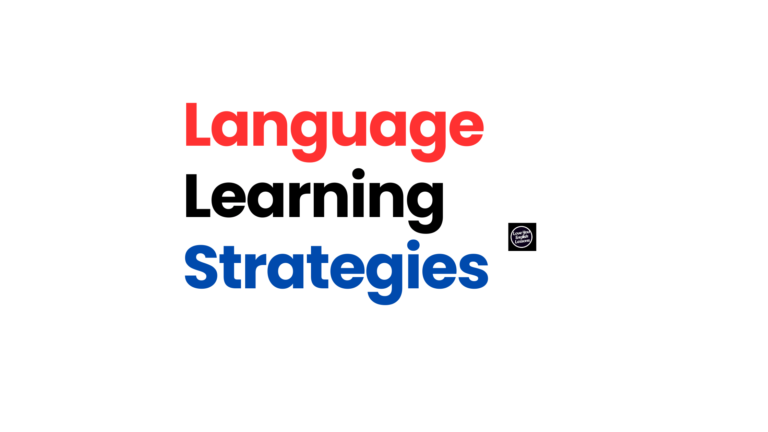How to Master English Language Learning in 2024
Hello everyone,
Learning a new language like English can seem like an enormous challenge, but it doesn’t have to be overwhelming.
With the right strategies and mindset, anyone can become proficient in English.
In this lesson, we’ll explore simple yet effective techniques to help you master the English language step-by-step.
Set Achievable Goals
The first step in mastering English is to set realistic goals for yourself.
Don’t aim for perfection from the start; instead, break your learning journey into manageable milestones.
For example, you could set a goal to learn 10 new vocabulary words each day or to practice conversational skills for 30 minutes daily.
Celebrate your small victories along the way, as they will motivate you to keep progressing.
Immerse Yourself in the Language
Immersion is one of the most effective ways to learn a new language.
Surround yourself with English as much as possible by watching movies, listening to music, reading books or news articles, and engaging with native speakers.
The more you expose yourself to the language, the more natural it will become for your brain to process and understand it.
Explore more topics:
- 4 Short Moral Stories for Kids
- 4 Amazing English Short Animal Stories
- Learn English through Stories: 4 Short English Stories
- 4 Short English Stories: Learn English through Stories
- Short English Stories: Learn English through Stories
Learn Vocabulary Systematically
Vocabulary is the foundation of any language, and English has a vast collection of words. To build a strong vocabulary, create flashcards or use language learning apps to study new words regularly.
Group words by topic or theme, and practice using them in sentences or conversations.
Additionally, make an effort to learn common idioms and phrases, as they can greatly enhance your comprehension and fluency.
Master Pronunciation
Pronunciation is crucial for effective communication in English.
Pay close attention to the way native speakers pronounce words, and practice repeating them out loud.
Consider using online resources or language learning software that provide pronunciation guides and feedback.
Remember, practice makes perfect – the more you practice, the more natural your pronunciation will become.
Study Grammar Rules
While grammar rules can seem daunting, they are essential for constructing proper sentences and understanding the structure of the language.
Start with the basics, such as verb tenses, subject-verb agreement, and sentence structure. As you progress, gradually introduce more advanced grammar concepts.
Use online resources, textbooks, or seek help from a tutor to clarify any confusion or doubts.
Practice Regularly
Consistent practice is the key to mastering any language, including English. Set aside dedicated time each day for studying, writing, reading, listening, or conversing in English.
Engage with native speakers whenever possible, as this will help you improve your listening comprehension and speaking skills.
Additionally, consider joining an English language club or finding a language partner to practice with regularly.
Make It Fun and Engaging
Learning a new language can be challenging, but it doesn’t have to be boring.
Incorporate fun activities into your study routine, such as watching your favorite movies or TV shows in English, listening to English music and trying to understand the lyrics, or reading books or comics that interest you.
When learning is enjoyable, you’re more likely to stick with it and make faster progress.
Be Patient and Persistent
Mastering a language takes time and effort, so it’s essential to be patient and persistent.
Don’t get discouraged by setbacks or periods of slow progress; they are natural parts of the learning process.
Celebrate your achievements, no matter how small, and stay focused on your goals. Remember, every step you take brings you closer to fluency.
Use Online Resources and Language Learning Apps
In today’s digital age, there are numerous online resources and language learning apps available to aid your English learning journey.
Websites like Duolingo, Babbel, and Rosetta Stone offer interactive lessons, games, and exercises to help you build your vocabulary, grammar, and comprehension skills.
Additionally, online dictionaries, forums, and language exchange platforms can provide valuable support and practice opportunities.
Seek Professional Help if Needed
If you find yourself struggling with certain aspects of English or need additional guidance, don’t hesitate to seek professional help.
Consider taking classes with a qualified English teacher or hiring a tutor who can provide personalized instruction and feedback.
They can identify your strengths and weaknesses, and tailor their teaching methods to suit your learning style.
Learn About English-Speaking Cultures
Language and culture are intrinsically linked, and understanding the cultures of English-speaking countries can enhance your overall language learning experience.
Learn about the customs, traditions, and social norms of countries like the United States, United Kingdom, Australia, and others.
This knowledge will not only help you better comprehend idioms, expressions, and contextual references, but also allow you to communicate more effectively with native speakers.
Stay Motivated and Celebrate Your Progress
Learning a new language is a long-term commitment, and it’s essential to stay motivated throughout the journey.
Celebrate your milestones, no matter how small, and reward yourself for your hard work.
Share your progress with friends and family and seek their support and encouragement when you need it. Remember, every step forward brings you closer to your goal of mastering English.
By following these simple strategies and remaining dedicated to your learning journey, you can master the English language and unlock a world of opportunities for personal growth, career advancement, and cultural enrichment.
Embrace the challenges, celebrate your progress, and enjoy the process of becoming fluent in one of the most widely spoken languages in the world.
____________________
Check out these awesome phrases & Idioms books I recommend:
IDIOMS and PHRASES Anglo,Synonyms and Antonyms Anglo,One Word Substitution






